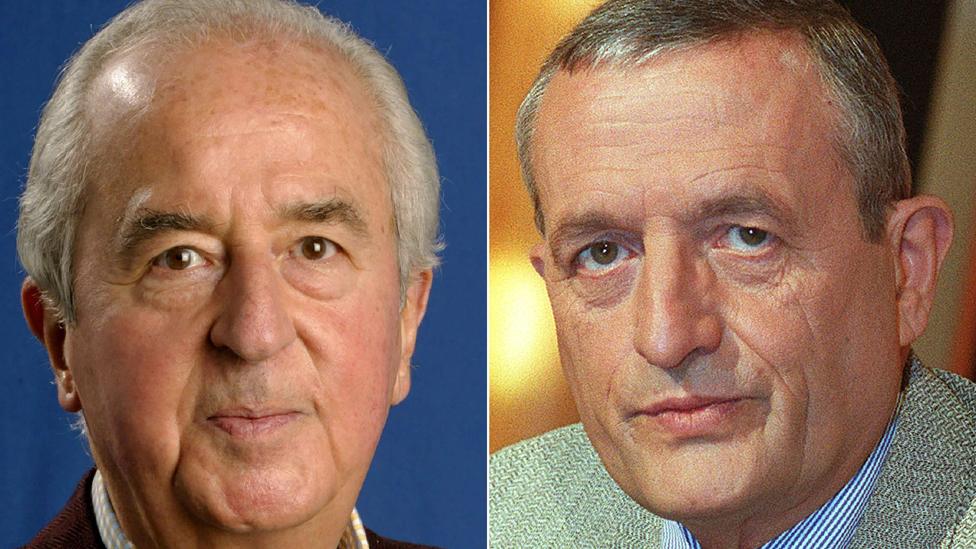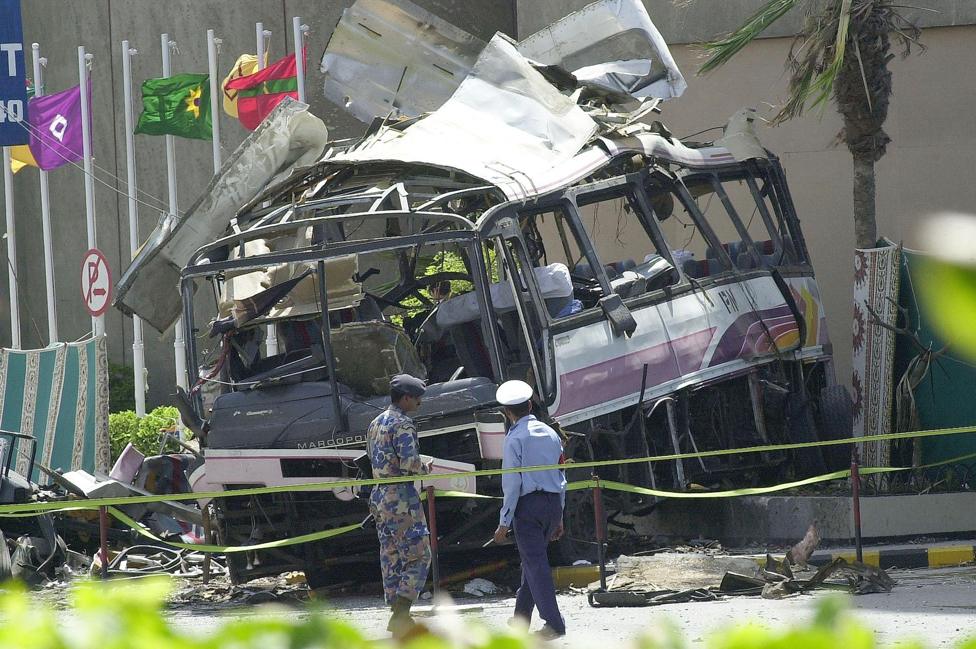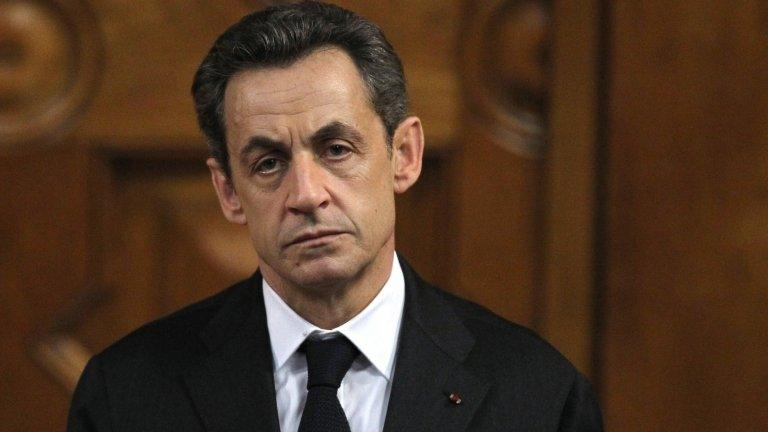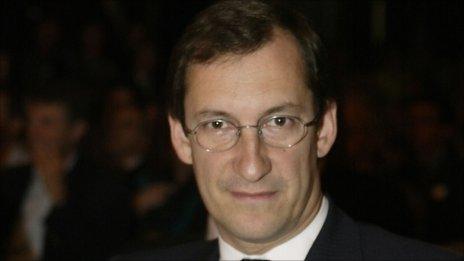Karachi submarine case: Balladur faces trial in France
- Published

Ex-PM Edouard Balladur (L) and ex-Defence Minister François Léotard (file photos)
Former French Prime Minister Edouard Balladur and an ex-defence minister are to stand trial over the so-called Karachi affair - a submarine deal with Pakistan in the mid-1990s which allegedly involved secret commissions.
Under that deal Mr Balladur, now aged 90, allegedly got funding for his failed 1995 bid for the presidency.
His then Defence Minister, François Léotard, also faces trial.
Both men categorically deny any wrongdoing.
In 2002 a bombing in Karachi killed 11 French engineers. There are suspicions that the car bombing, which wrecked a bus, was an act of revenge after President Jacques Chirac had ordered payment of the secret arms deal commissions to stop.
Attorney General François Molins announced that Mr Balladur and Mr Léotard would go before a special tribunal for present and past government officials accused of wrongdoing.
The allegation is that Mr Balladur approved payment of the commissions to intermediaries in the sale of three submarines to Pakistan, and that from them so-called "retro-commissions" came back to France to fund his presidential bid.
The kickbacks are estimated to have cost 13m francs (almost €2m, or £1.8m, in today's money).
Mr Balladur was prime minister from 1993 to 1995. Both he and Mr Léotard were charged in May 2017 with "complicity in misuse of corporate assets and concealment" over the Pakistan deal.

The wrecked bus: Anger over unpaid bribes might have motivated the Karachi bombing
Pakistani authorities blamed Islamist militants for the 2002 bombing, which killed 15 people in total. The 11 French engineers who died were working on the Agosta-class submarine contract. Long-running investigations into the crime are continuing.
Former President Nicolas Sarkozy - a conservative who was close to Mr Balladur - also came under legal scrutiny over the Karachi affair. He denied any connection to the deal.
Separately, on Tuesday Mr Sarkozy lost his legal appeal to avoid facing trial over allegations that his failed re-election campaign in 2012 was financed illegally.
France's top appeals court has returned the case to prosecutors to decide if Mr Sarkozy should be tried. He denies accusations that his party, known then as the UMP, used a public relations firm to hide the real cost of his presidential bid.
The case is known in France as the Bygmalion affair, after the name of the public relations firm that allegedly provided false invoices to help Mr Sarkozy.
- Published10 January 2013

- Published22 September 2011

- Published4 June 2010